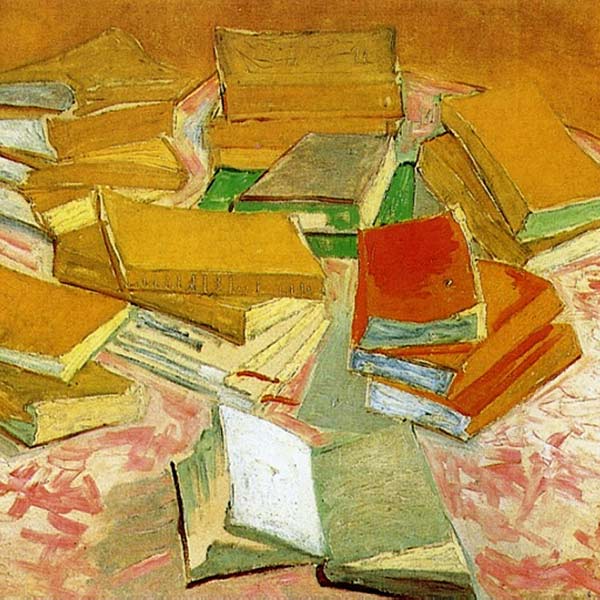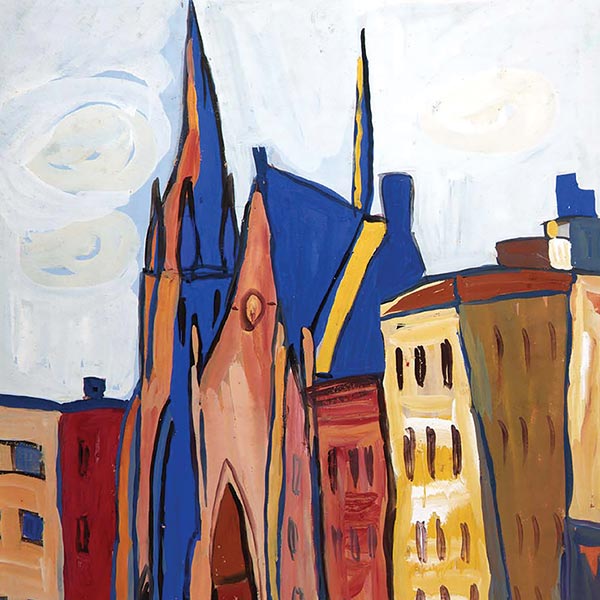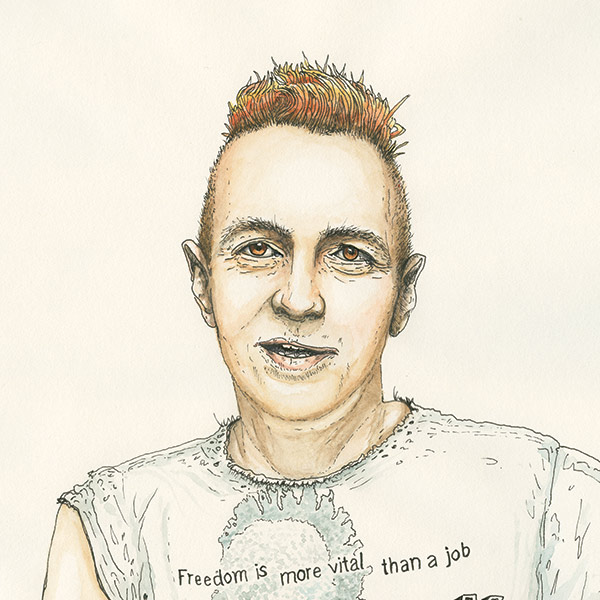Utopia, the famous book by the martyr Thomas More, is now over five hundred years old. The yearning for utopia has had an immense impact on history – sometimes for good, often for ill. But should we be so quick to dismiss More’s vision of a society free of violence and private property?
On October 31 of this year, Pope Francis and the Lutheran Archbishop of Sweden joined together in an ecumenical service to commemorate the start of the Reformation 499 years ago. As the international media coverage made clear, there is good reason to mark this date: what happened after Martin Luther posted his ninety-five theses on the church door in Wittenberg in 1517 ended up transforming Europe and the world, triggering conflicts that tore apart church and society. The century of bloody religious warfare that followed laid the groundwork for the modern nation-state system and the rise of secularism.
While these geopolitical developments garner much attention, other aspects of the sixteenth century have largely disappeared from view. And yet these neglected histories cast light on questions that are just as urgent today as they were a half-millennium ago. For example, take the first question of all: How should we live? At the beginning of the sixteenth century, this question erupted throughout Europe. People began asking: How should we structure our society? How can we provide justice, peace, and equality for all?
When such questions are raised, it indicates that people’s thought-world has changed. All of a sudden they realize that customary practices, things that have always been done a certain way, might actually be improved or abandoned. People gain the ability to look at their own situation from the outside, to analyze their own way of life. Specifically, they become able to take a hard look at how the basic assumptions of their society measure up against the Christian gospel.
It was in this sense that sixteenth-century Europeans saw the basics of their faith with fresh eyes. They sought to identify what was essential to living as a Christian. In their writings and publications, they sparked a continent-wide conversation about fundamentals among educated readers and thinkers.
The sixteenth-century movement that grew out of this new ability to look critically at conventional ways of living is known as humanism. Among its most prominent champions was the English jurist Thomas More, whose masterwork Utopia was published five hundred years ago this year. (Now canonized as a Catholic saint, More may be most widely known thanks to the Academy Award–winning film A Man for All Seasons, which portrays his martyrdom in 1535 at the hands of King Henry VIII.)
Written in Latin, Utopia is a philosophical dialogue in the form of a short story that has been called “one of the most interesting pieces of political literature ever written.” 1 The book reflects the many conversations that More shared with his fellow humanists, especially his close friend Erasmus of Rotterdam.
While Utopia is the title under which the work is best known – More’s neologism would spawn a whole new literary genre of utopias – the book’s original title is considerably longer, and hints at More’s real interest: On the Best State of a Republic and the New Island Utopia. While containing abundant social satire, the book’s aim is ultimately to invite readers to reflect: How can society function better than it does now?
The narrative’s literary structure is sophisticated. Near the end of the first part of the book, the narrator, known to the reader as “Thomas More,” describes meeting a foreign sailor while on a business trip to Flanders on behalf of the king of England. The sailor’s name is Raphael Hythlodeus. The two new acquaintances begin a wide-ranging conversation about England’s and the Continent’s political situation. Raphael then remarks:
To speak plainly my real sentiments, I must freely own that as long as there is any property, and while money is the standard of all other things, I cannot think that a nation can be governed either justly or happily: not justly, because the best things will fall to the share of the worst men; nor happily, because all things will be divided among a few (and even these are not in all respects happy), the rest being left to be absolutely miserable.2
Is it not remarkable how these sentences from the sixteenth century speak directly to today’s social and political debates? I only need remind the reader, for example, of French economist Thomas Piketty’s 2014 book Capital in the Twenty-First Century and the controversy it has sparked. These same concerns occupy More’s mysterious stranger, who continues:
When I reflect on the wise and good constitution of the Utopians, among whom all things are so well governed and with so few laws, where virtue hath its due reward, and yet there is such an equality that every man lives in plenty – when I compare with them so many other nations that are still making new laws, and yet can never bring their constitution to a right regulation … where, notwithstanding everyone has his property, yet all the laws that they can invent have not the power either to obtain or preserve it, or even to enable men certainly to distinguish what is their own from what is another’s, of which the many lawsuits that every day break out, and are eternally depending, give too plain a demonstration.
The historical Thomas More was a lawyer. From his professional life, he was all too familiar with the ways in which “many lawsuits” could be a symptom of deep problems in a country’s legal system. This minor observation highlights an ambiguity that runs throughout the book: it’s far from clear that the “Thomas More” whom we meet in the pages of Utopia is identical to the real Thomas More. After all, here it is the foreign sailor Raphael who is giving voice to the real More’s professional experiences. Yet in the book, the character “Thomas More” at times disagrees with Raphael’s opinion.
Why might the character “Thomas More” express views different from those of the real Thomas More? We must remember that the author was living in the dangerous political climate of sixteenth-century England, in which the risk of losing one’s head was all too real. Thus, it must have been highly expedient for him that his fictional namesake decisively rejected Raphael’s argument for total community of goods. This pattern repeats itself throughout the book. Whenever Utopia touches on politically sensitive subjects, the author sends the character “Thomas More” into the field to disavow anything that might seem subversive. It’s a device that allows him to safeguard both his creative and his physical liberty.
It is for this reason, perhaps, that at the end of the first part of Utopia the character “Thomas More” criticizes Raphael’s suggestion that private property is the root of all evil:
“On the contrary,” answered I, “it seems to me that men cannot live conveniently where all things are common. How can there be any plenty where every man will excuse himself from labor? For as the hope of gain doth not excite him, so the confidence that he has in other men’s industry may make him slothful.”
The foreign sailor shows great understanding for the fictitious “Thomas More’s” objection, but responds confidently on the basis of his own experience:
“I do not wonder,” said Raphael, “that it appears so to you, since you have no notion, or at least no right one, of such a constitution; but if you had been in Utopia with me, and had seen their laws and rules, as I did, for the space of five years, in which I lived among them, and during which time I was so delighted with them that indeed I should never have left them if it had not been to make the discovery of that new world to the Europeans, you would then confess that you had never seen a people so well constituted as they.”
Footnotes
- Gerhard Ritter, translator’s note, in Thomas More, Utopia (Eberhard Jäckel, 1977), 3–6.3.
- All quotations from Utopia are taken from Gilbert Burnet’s translation (Cassell, 1901).
- Thomas Gehrig, “Commons auf Utopia: Beiträge zur Rückeroberung einer Debatte,” in Express: Zeitung für sozialistische Betriebs- und Gewerkschaftsarbeit, May 2011.
- Grete Mecenseffy, Geschichte des Protestantismus in Österreich (Graz, 1956).
- Ibid.
- Cited in Mecenseffy, Geschichte des Protestantismus in Österreich.
- On the reception history see Terence Cave, Thomas More’s “Utopia” in Early Modern Europe: Paratexts and Contexts (Manchester University Press, 2008).
- Christoph Andreas Fischer, Der Hutterischen Widertauffer Taubenkobel and Vier und funfftzig Erhebliche Ursachen, Warumb die Widertauffer nicht sein im Land zu leyden (Ingolstadt, 1607).
- Burchard Brentjes, Atlantis: Geschichte einer Utopie (DuMont, 1994), 92–95.
- Ibid.
- Ibid.
- Thomas Lange, “Soutanenkaserne oder heiliges Experiment? Die Jesuiten-Reduktionen in Paraguay im europäischen Urteil,” in Mythen der Neuen Welt, ed. Karl Heinz Kohl (Berlin, 1982), 210–223.
- Eberhard Arnold, “Bruderhof-Korrespondenz 1934,” in Dietrich-Bonhoeffer-Jahrbuch 2 (2005/2006), 75–87. For the episode related here see Emmy Barth, An Embassy Besieged: The Story of a Christian Community in Nazi Germany (Cascade, 2010).
- Dietrich Bonhoeffer, Life Together, trans. John Doberstein (Harper and Row, 1954), 30.
- Eberhard Arnold and Thomas Merton, Why We Live in Community (Plough, 1995).
- Ibid., 42.
- See the website www.convivialism.org.















